
The new year is almost here and a lot of us will focus more on losing weight and getting healthier.
In fact, this is the time when the battle against weight gain becomes increasingly challenging, especially for those of us over 50.
Despite adopting seemingly healthy habits, many find themselves struggling to shed those stubborn pounds.
The rituals of regular workouts and mindful eating become a testament to your dedication to well-being. Even with all of these efforts, the scale often becomes frustrating because it tells a story that does not match your goals.
So, what’s causing this? Why are women over 50 not losing weight despite all these efforts?
Well, based on my experience in this stage of life as well as that of the women in our fabulous community, there’s something that has always been a common issue, and it is the ONE major reason you’re not losing weight if you are over 50.
There is one big reason weight loss feels harder now, and it’s because your metabolism has slowed down with age, especially due to hormone changes and muscle loss.
So today, let’s break it down. Let us talk about the metabolic slowdown of aging, how it affects weight loss for women over 50, and how to overcome it.
Key Takeaways: Why am I not losing weight over 50, even when I’m trying?
- Your metabolism has slowed down. After 50, your body burns fewer calories at rest than it did in your 20s and 30s.
- You’ve lost some muscle without noticing. Muscle is “calorie-hungry” tissue. As we age, we naturally lose muscle (sarcopenia), which lowers resting metabolic rate.
- Hormone changes shift where fat is stored. Less estrogen is linked to more belly fat and changes in how your body uses energy.
- Your calorie needs are lower than before. For many women, energy needs drop by around 200 calories per day after 50, especially if activity levels don’t increase.
- Lifestyle stressors add up. Less sleep, more sitting, certain medications, and higher stress can quietly work against your efforts.
- The good news? Small, steady changes in movement, muscle-building, and food choices can gently “wake up” your metabolism again, without extreme diets or punishing workouts.
What is the one major reason you’re not losing weight over 50?
The one major reason you’re not losing weight over 50 is that your metabolism has slowed down, so your body burns fewer calories than before, even when you rest.
Your metabolism is how your body turns food into energy. When you were younger, your body:
- Burned more calories at rest
- Had more muscle
- Was often more active without you even thinking about it
After 50, especially around menopause, studies show that women tend to:
- Lose muscle (called “lean mass”)
- Burn fewer calories at rest
- Gain more fat around the belly
So you might be eating the same, doing similar workouts, but your “engine” is smaller and slower. That’s why it feels like the rules suddenly changedbecause they did.
How does your metabolism change after 50?
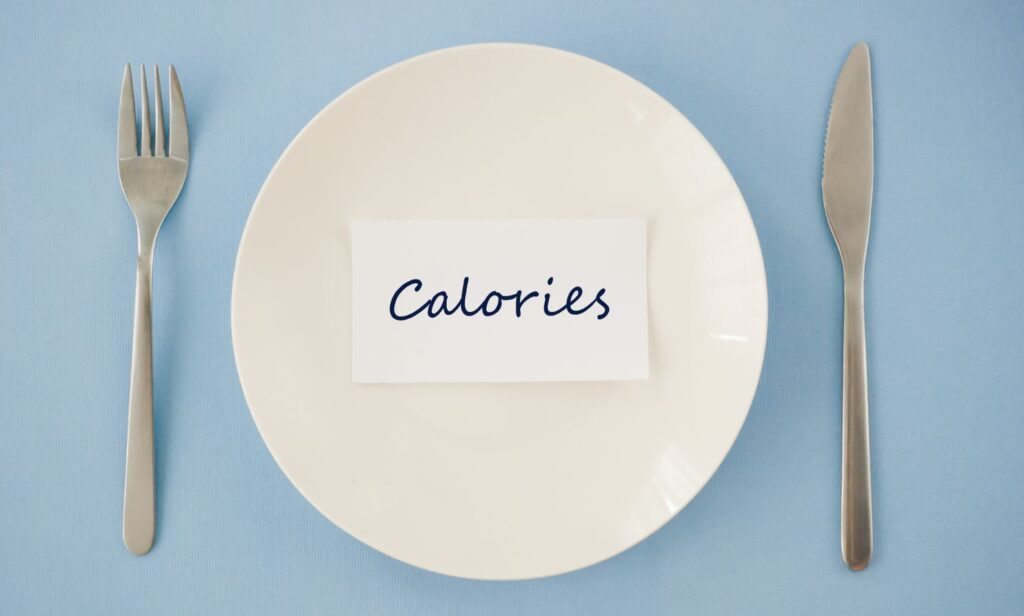
Your metabolism changes after 50 by slowing down, mainly because you lose muscle, move less, and your hormones shift.
Here’s what that means in real life:
- Less muscle: Muscle is “expensive” for your body. It burns more calories, even when you’re sitting down. As you age, you naturally lose muscle unless you do strength training.
- Lower hormones: When estrogen drops at menopause, research shows it’s linked to more belly fat, less lean mass, and a drop in resting metabolic rate.
- Less movement without noticing: More sitting, more screen time, less running around after kids… all of this gently lowers how much you burn each day.
None of this means you’ve failed. It just means your body has changed and needs a new plan.
READ ALSO: Ways to Boost Your Metabolism After Menopause
How many calories do women over 50 actually need now?
Most moderately active women over 50 need fewer calories—often around 1,600–1,800 calories a day—compared with about 2,000 calories a day in their 30s and 40s.
Official guidelines show that:
- Women up to about age 50 who are moderately active often need around 2,000 calories a day.
- After 50, that often drops to about 1,800 calories a day if activity stays the same.
Research recommends 2,000 calories a day for moderately active women up to 50. The turning point occurs after 50, requiring a 1,800-calorie reduction to accommodate metabolic changes with age.
That’s a difference of about 200 calories a day, which is:
- A small muffin, or
- A big milky coffee, or
- A couple of handfuls of “mindless” snacks
If your body now needs less, but your portions haven’t changed, your weight slowly climbs, even if your food is “healthy.”
This is why you might feel like you’re gaining weight “doing nothing wrong.” Your body’s settings changed quietly in the background.
Why does losing muscle make weight loss harder after 50?
Losing muscle makes weight loss harder after 50 because muscle burns more calories than fat, so when muscle goes down, your daily calorie burn goes down too.
Think of muscle as your internal “metabolism engine.” When you:
- Have more muscle → you burn more calories all day
- Have less muscle → you burn fewer calories all day
Research on menopause shows that this stage of life is linked to:
- Faster loss of lean mass (muscle)
- Lower resting metabolic rate
- More fat stored around your tummy
You can still build and keep muscle at any age with gentle, regular strength training. Studies in older adults show that resistance training helps maintain muscle and strength even in later life.
Every time you lift a weight, do a squat, or use your own body weight in a workout, you’re telling your body to keep the muscles because you still need it.
READ ALSO: How to Build Muscle and Get Stronger Over 50
Is it just your hormones, or is lifestyle part of the problem too?

It’s both. Hormone changes make things harder, but lifestyle habits like sitting more, sleeping less, and eating larger portions also play a big part in weight gain after 50.
Here’s how they team up:
- Hormones: Lower estrogen is linked with more belly fat, less lean mass, and changes in how your body uses carbs and fats.
- Lifestyle:
- You may sleep less or wake up a lot (night sweats, busy mind).
- You may sit more (work, TV, scrolling).
- Stress might be higher (family, work, health, money).
Poor sleep and chronic stress are both linked to more weight gain and more belly fat.
So no, it’s not “just hormones”… but it’s also not “just you being lazy.” It’s a mix, and that means you have more than one way to improve things.
READ ALSO: Signs You Have a Hormonal Imbalance and How To Treat It
What simple changes can help boost your metabolism after 50?
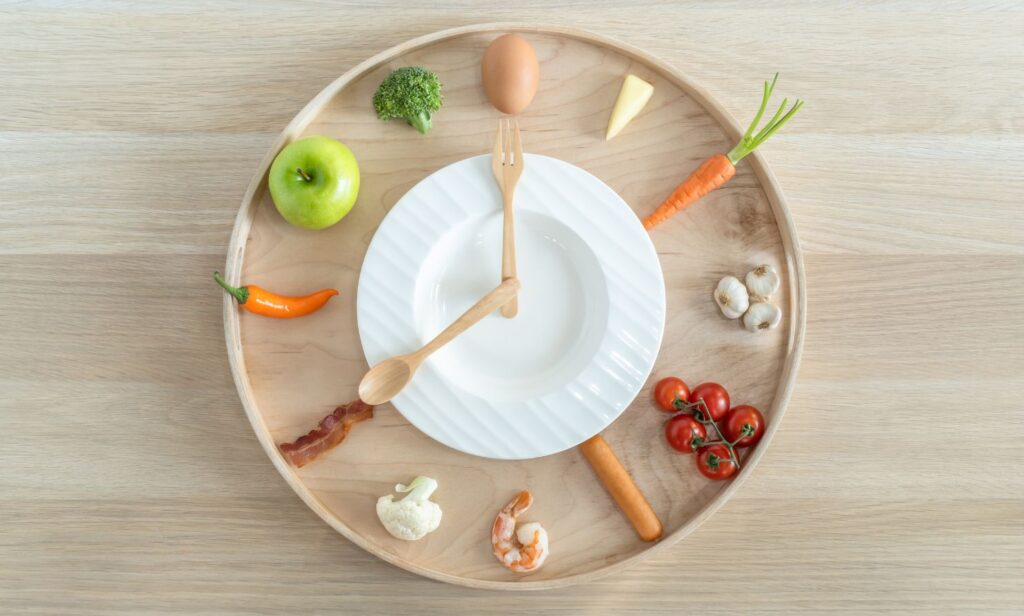
You can gently support your metabolism after 50 by moving daily, doing strength training a few times a week, and making small, smart changes to your food and portions.
Simple exercise habits
- Aim for 30–60 minutes of exercise most days: This can be broken into chunks: a walk + a short workout + stretching.
- Do 2–3 strength sessions a week: Use light weights, resistance bands, or bodyweight routines. Strength work helps keep muscle and your daily calorie burn higher.
- Sit less overall: Stand up during calls, walk around the house every hour, do a few gentle squats while the kettle boils. These “little” moves really add up.
Gentle food tweaks
- Add protein to every meal to stay full longer and support muscle.
- Fill half your plate with veggies or salad at lunch and dinner.
- Pay attention to liquid calories (juices, sugary drinks, alcohol).
- Take note of “extra” bites, such as tasting while cooking, finishing others’ food, mindless snacking.
You don’t need a perfect “diet.” You just need a slightly better pattern that you can keep going.
READ ALSO: Is Weight Lifting for Women Over 50 a Good Idea?
Are there foods and drinks that really help your metabolism?

Some foods and drinks can give a small boost to energy use and fat burning, but they only help when they are part of an overall healthy pattern.
Here are a few that have some research behind them:
- Spicy foods with capsaicin (like chili peppers): Meta-analyses show capsaicin (the “hot” compound) can slightly increase energy expenditure and fat oxidation and may reduce calorie intake, but the effect is modest.
- Green tea: Green tea and green tea extracts rich in catechins have been shown in some trials to slightly increase thermogenesis and fat oxidation, and in some cases reduce body fat over time.
- Whole, minimally processed foods: Whole foods generally take more effort to digest and are linked with better weight control and health overall.
These effects are small. No food will undo a large calorie surplus, so you need to exercise more, protect your muscle and eat in a gentle calorie deficit.
How should your plate look if you want to lose weight after 50?
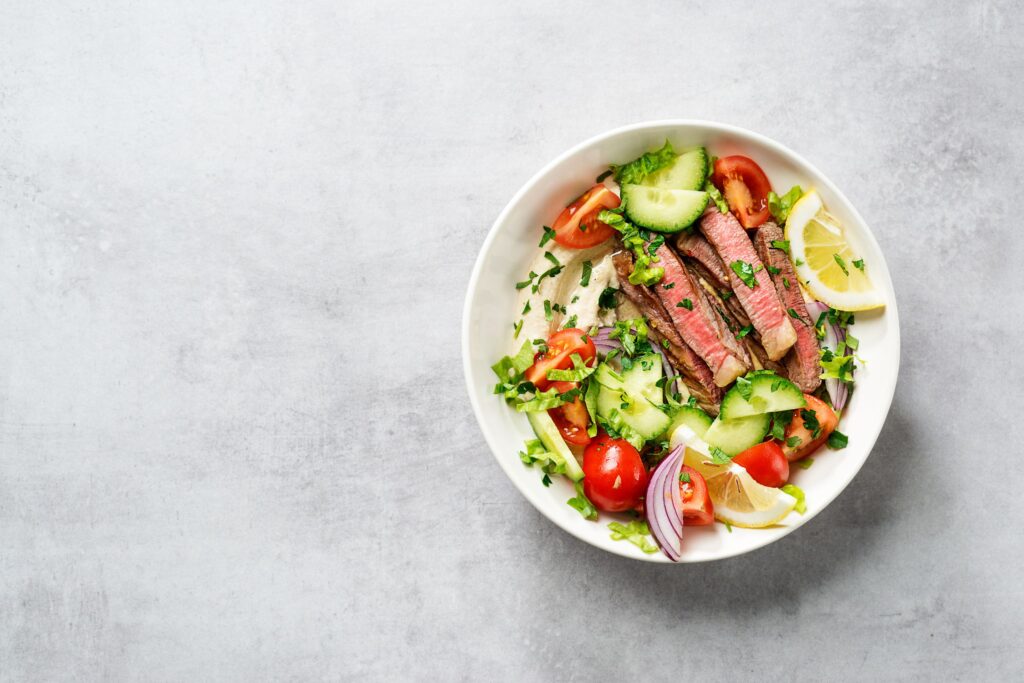
Your plate should be built around protein, plenty of fibre-rich veggies, some smart carbs, and healthy fats, in portions that match your lower calorie needs now.
A simple “after 50” plate might look like this:
- ½ plate: Non-starchy veggies (broccoli, salad, green beans, carrots, peppers)
- ¼ plate: Protein (fish, chicken, eggs, Greek yogurt, tofu, beans)
- ¼ plate: Fibre-rich carbs (brown rice, quinoa, sweet potato, wholegrain pasta)
- 1–2 teaspoons: Healthy fat (olive oil, nuts, seeds, avocado)
A few easy rules:
- Start every main meal by asking, “Where is my protein and my veg?”
- Use slightly smaller plates and bowls than you did in your 30s.
- Eat slowly, so your brain has time to catch up and say, “I’m full.”
This style of eating supports your metabolism, your hormones, and your energy.
READ ALSO: The Menopause Meal Plans That Work For Women Over 50 (Backed by Science)
When should you talk to your doctor about weight and metabolism?
You should talk to your doctor if your weight is rising quickly, if you can’t lose weight despite consistent healthy habits, or if you have symptoms like extreme tiredness, low mood, or other changes that worry you.
This is especially important if:
- You suspect thyroid problems (feeling cold, very tired, hair thinning, unexplained gain).
- You’re on medicines that can affect weight (like some antidepressants or steroids).
- Your weight gain is sudden or comes with other unusual symptoms.
You deserve proper support, this is not something you have to “figure out” all alone.
Closing Thoughts
Women over 50 have to deal with a lot of different things in order to lose weight. Understanding the metabolic shift is the key to long-term success.
We can start a journey to a healthier, more powerful version of ourselves by incorporating these ideas into our daily lives.
Important: This article is educational only. It can’t replace medical advice. Always check any new or worrying symptoms with your healthcare professional.
FAQs About Weight Loss and Metabolism After 50
Yes, you can absolutely lose weight after 50, but it’s usually slower and requires more focus on strength training, daily movement, and portion awareness than in your younger years. Many women in their 50s, 60s, and beyond lose weight successfully when they work with their changing metabolism instead of trying to copy what worked at 25.
No, you do not have to cut out all carbs to lose weight. You’ll get better results by choosing smart carbs such as like veggies, fruit, oats, brown rice, quinoa, and beans, and being careful with sugary drinks, sweets, and highly processed snacks. It’s the type and amount of carbs that matter most.
No, you don’t need hard or punishing workouts to support your metabolism.
Gentle, consistent exercise plus strength training is often enough:
Try walking, low-impact cardio, and short home workouts, and 2–3 strength sessions a week with light weights or bands.
Yes, eating far too little for a long time can slow your metabolism and make you feel tired and unwell.
Very low-calorie diets can cause your body to lose more muscle, burn fewer calories and increase hunger and cravings. A small, steady calorie deficit with movement is kinder and works better long term than extreme restriction.
No, green tea and spicy foods cannot “fix” a slow metabolism by themselves, but they can give a small extra push when your overall lifestyle is already in a good place.
No, menopause is not the only reason you gained weight, but it is an important part of the bigger picture.
The hormone changes of menopause are linked to more belly fat and muscle loss, but your sleep, stress, medications, movement, and food patterns all join in too.
The first small step is to choose one thing you can do most days this week, like a 20-minute walk or adding protein to breakfast and stick with that.
This article was first published in December 29, 2023 and last updated on December 11, 2025.

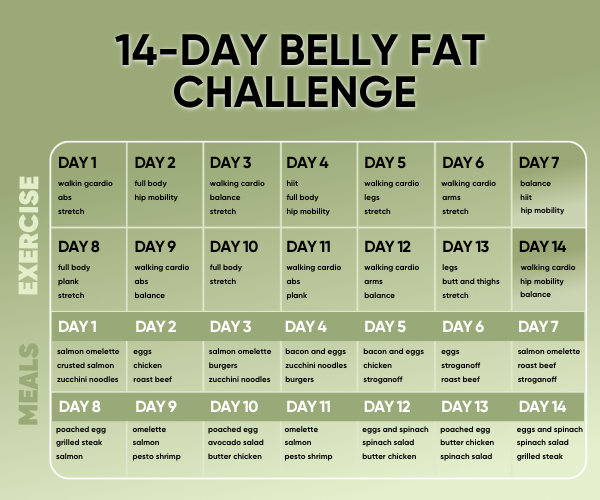











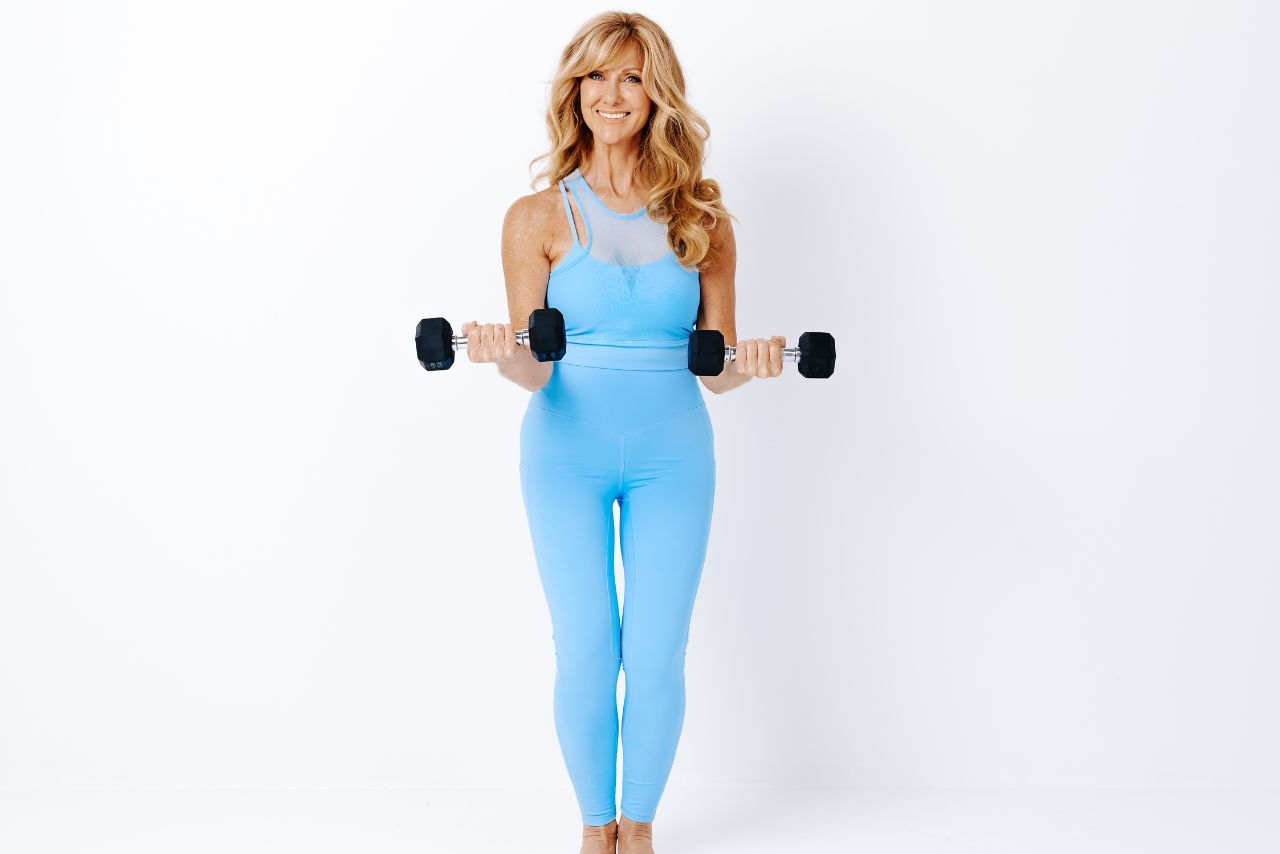

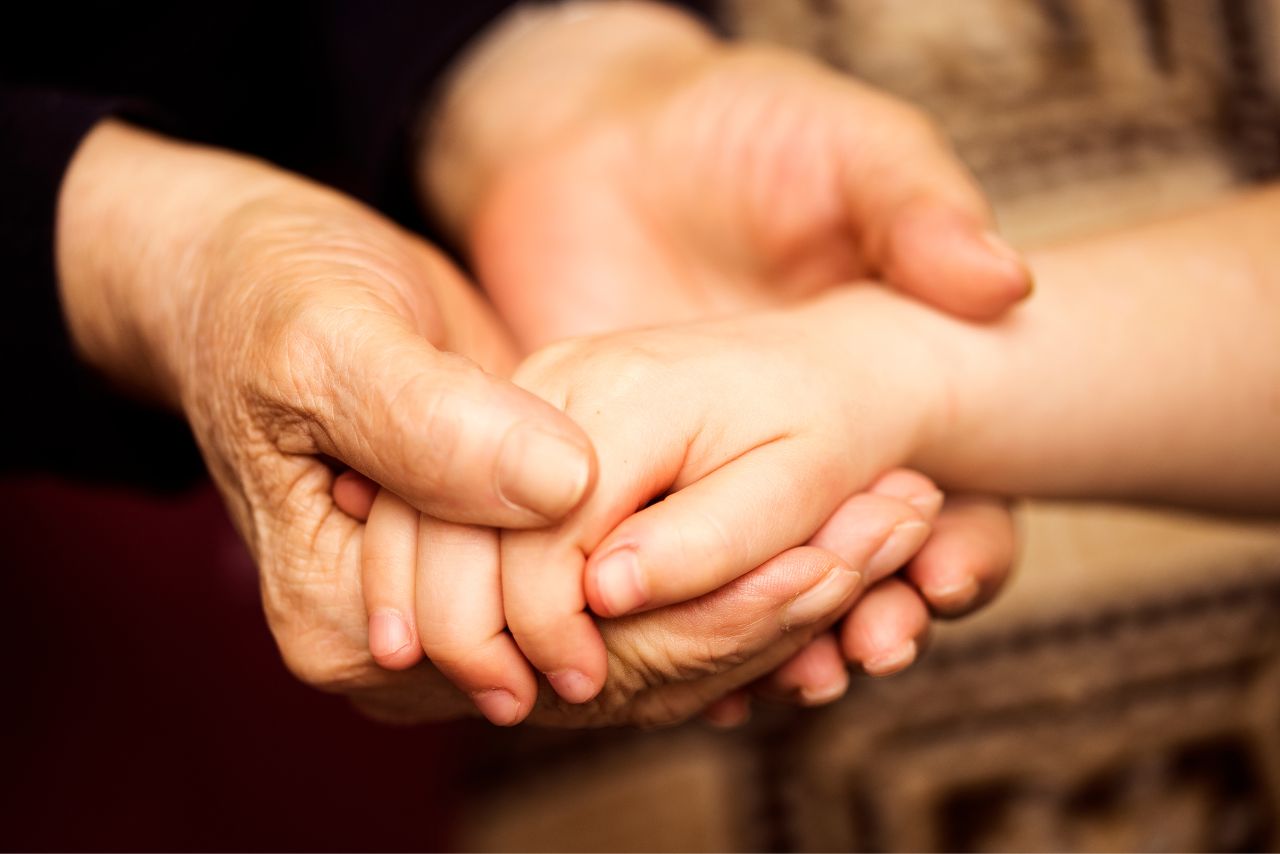





2 Responses
Schellea, your comments are so true, I’m now 54, and since Covid I have been gaining weight, feeling horrible about myself (my husband still tells me I’m gorgeous), last summer I went to the Doctor (pushed by my wonderful husband) because I was becoming obnoxious, I’m now on HRT, feeling better in myself and better in myself than I have in year, but the added pounds need to go. I want to be the slimmer me from my 30’s not the skinny me from my 20’s. Your workout, and your attitude is just what I need, I’m at the start of my journey, give me 6 months and I will let you know how I’m doing.
Sending love ❤️
Angela
Thank you so much for taking the time to share this with me Anglela. ? Go you! Every single day that you’re showing up, know that you’re doing something to make a difference for yourself.? Keep up the great work! ??